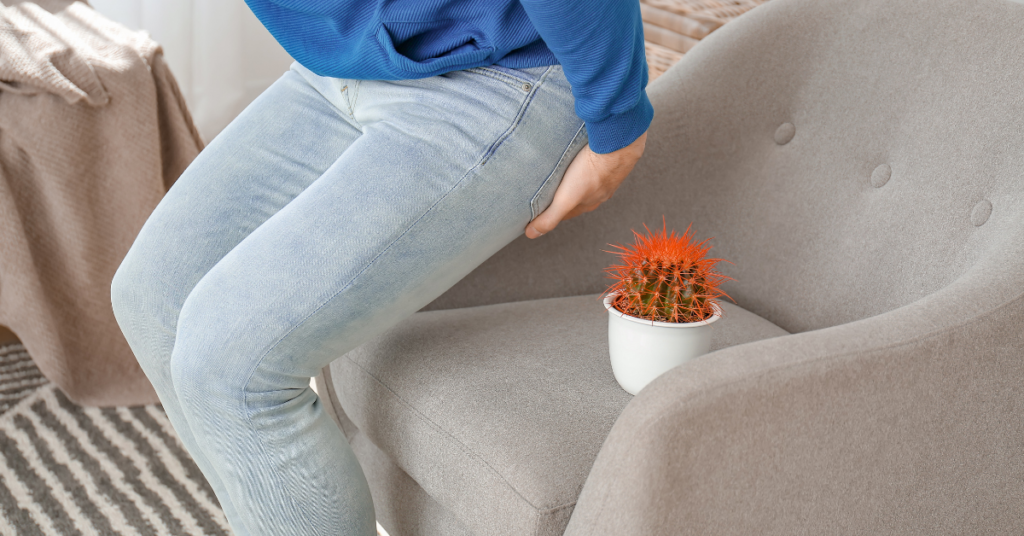
Fissures in the anus skin are called anal fissures. It can affect people of various ages, but it is most prevalent in children. In newborns and middle-aged adults.
It is usually not a dangerous condition that most people may treat at home. Anal fissures that repeat or don’t heal quickly should be treated with caution.
Who is likely to get affected by an anal fissure?
Although the pain and bleeding may appear to be signs of other illnesses, such as hemorrhoids, these tears are pretty frequent. Men and women have both experienced them. They can also affect infants.
Adults between the ages of 20 and 40 are the most prone to contract them. However, you can get them at any age, though your risk decreases as you become older.
Anal fissures are more common in those who have particular medical disorders, like:
- Anal cancer
- Leukemia
- STDs and HIV
- Crohn’s colitis
Why do people tend to get affected by anal fissures?
They’re caused by trauma or injury to your anal canal, which strains it. There may be various explanations for this, including:
- Constipation or passing big or firm stools.
- Persistent diarrhea
- Childbirth
Having anal intercourse or placing things into your anus can stretch the skin and develop a fissure less frequently.
Anus development and repair can be hampered by too much pressure, tight anal sphincter muscles, and a lack of blood flow.
Anal fissures rarely progress to more severe issues. They aren’t cancer-causing.
Untreated anal fissure might lead to?
Though cancer of the anus may make anal fissures appear to be linked to bowel cancer, they are not. It’s not uncommon for an anal fissure to lead to one or more of the following problems:
Anal fissure chronic:
The rupture does not heal. Over time, this might cause substantial scarring at the site of the fissure (sentinel pile).
Anal canals are also connected to other organs, like the bowel, via these atypical “tunnels.”
Anal stenosis occurs when the anal canal narrows abnormally due to a spasm of the anal sphincter or contraction of the scar tissue resulting from the spasm.
Anal fissures treatment:
- The tear (fissure) heals in about a week for most people, just like any other small cut or tear to the skin.
- The goal of Acute Fissure Treatment In Coimbatore is to relieve pain and keep stools (faeces) soft while the fissure heals.
Relieving severe discomfort or pain:
- Warm baths are relaxing and may aid in the relaxation of the backchannel (anus), hence reducing pain.
- Ointment: This should only be used for a limited time (5-7 days). The anesthesia may irritate or sensitize the area around the anus when used for a long time.
Anal fissure in children:
The soreness typically causes children to hang on to their stools. This can create a vicious cycle since larger and firmer stools form. When these are ultimately passed, they cause much more suffering.
For children with an anal fissure, a short course of laxatives may be administered in addition to the above procedures. While the fissure heals, the goal is to keep their stools soft and loose.
Understanding the diagnostic tests before recommending treatment options:
These symptoms might readily be misinterpreted as indicators of other illnesses, such as hemorrhoids.
You may not feel comfortable informing your fissure specialist doctor about your concerns, but you must do so. They’ll be able to rule out more dangerous problems this way.
The tear is frequently noticeable. This examination is usually all that is required to identify an anal fissure. Acute anal fissures have the appearance of a fresh rip, similar to a paper cut. A chronic anal fissure is more likely to have a deeper tear and fleshy growths on the inside or outside.
Physical examination:
Even though your doctor can typically diagnose an anal fissure based on your symptoms, a physical exam is the best method to find out whether you have one. Your doctor may check for a fissure in the region.
Treatment options to treat a chronic fissure treatment:
If alternative therapies have failed, surgery may be recommended.
As the most effective treatment for anal fissures, 9 out of 10 people have reported long-term success with this method. It does, however, come with a small risk of problems.
The majority of anal fissures heal without the need for chronic anal fissure surgery. Because anal fissures are open sores, keeping them clean and dry will help the body’s natural healing processes.
Current fissures can heal, and future ones can be prevented by eating a high-fiber diet, drinking enough fluids, taking sitz baths, and applying anti-inflammatory ointments. Anal fissures usually heal within a few weeks; however, chronic fissures are those that have not healed after 4–6 weeks.
Anal fissures can be treated with a variety of surgical methods
Lateral sphincterotomy:
To alleviate the stress in your anal canal, a sphincterotomy for the fissure involves creating a small cut in the ring of muscle encircling the sphincter. This allows the anal fissure to completely recover and lowers the various possibilities of further fissures forming.
It’s a quick and reasonably painless procedure generally done on a day patient basis under general anesthesia. As a result, you won’t have to spend the night in a hospital after the procedure is completed.
With a record of effectiveness, a lateral sphincterotomy is one of the most successful therapies for anal fissures. Many people are completely healed after a couple of weeks.
As a result of injury to the anal muscles, less than 1 in 20 patients who have this sort of surgery will experience some temporary loss of bowel control (bowel incontinence). Reach out to the best general surgeon in Coimbatore if you are looking for fissure treatment.
However, this is usually a mild form of incontinence that occurs when a person is unable to stop farting (flatulence) and lasts only a few weeks.
Advancement anal flaps:
To perform advanced anal flaps, healthy tissue from another area of your body is removed and applied to the area to patch the fissure while also increasing blood flow.
Long-term (chronic) anal fissures caused by pregnancy or damage to the anal canal may be treated with this treatment.
To maintain bowel contents soft, advise the patient to increase dietary fiber and fluid intake. It is critical to emphasize the importance of proper anal hygiene and the need to keep the anal area dry. Sphincter relaxation can be achieved with regular sitz baths (sitting in warm water up to the hips). Consult the NABH hospital in Coimbatore to get medical assistance for anal fissures.








